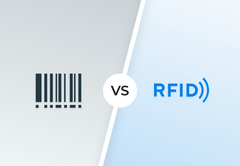
PDA Introductions
The Handheld terminal refers to a data processing terminal that comes with operating system,screen,barcode scan engine and WiFi&WLAN modules for data transmission processing and also can be carried by mobile.
Handheld terminal are widely used in the fast-developing modern society and are also widely used in manufacturing.But how to choose smart handheld barcode terminals, how to compare the advantages and disadvantages between different handheld terminal products has always been a lingering problem in front of industry users. Below 9 aspects such as industry application,operating system,memory capacity,CPU performance,screen resolution,coding range, protection level, interface requirements, first reading rate and communication capability.
1). Application field
The application fields of handheld terminals are very wide, and users can select different handheld barcode terminals according to their different usage conditions. Take the warehouse as an example. If the user uses a PDA in a large three-dimensional warehouse, the storage location of the item is relatively high, and it is far away from the operator. It should be selected to scan the handheld terminal with a large depth of field and a long reading distance and a high first reading rate. For users of small and medium-sized warehouses, you can choose a PDA that is fully functional and easy to operate.
2).Operating system
The operating system has Android, Windows and a handheld terminal without an operating system.The handheld terminal without operating system is an embedded system based on c language and Linux that needs secondary development. It has a graphical interface and communication interface for human-computer interaction. Such embedded systems have low consumption resources, are more professional and stable. Sex. Different operating system choices will have different operating experiences. However, the current domestic use is the Android system.
3).Memory capacity
The memory capacity of the handheld terminal determines the data capacity, and its memory capacity corresponds to the CPU processing speed. If you use a low-performance CPU PDA, blindly increase its memory capacity, it will increase the processing and waiting time when users use it.
4).CPU performance
At present, the number of CPU bits and main frequency of the handheld terminal has been improved. Some high-end PDA products have adopted 32bit CPUs with RISC, which improves the user's on-site processing speed.
5).Screen resolution
Higher resolution can better support the software, display the operation interface, and improve the user experience. Appropriate brightness and contrast also protect the operator's vision.
6).The coding range
The handheld terminal can recognize dozens of different code systems such as EAN code and UPC code, but there are great differences. In the application of logistics enterprises, we must also consider EAN128 code, Sanjiu code, Kudba code and so on. The user should fully consider the coding range in his actual application when selecting.
7).Protection level
The high degree of protection ensures stable operation of the PDA in harsh industrial environments and ensures work efficiency.
8).Interface requirements
Users should understand the operating environment, interface mode, etc. when selecting, and select the appropriate PDA to adapt to different operating environments and interfaces.
9).Communication capabilities
As an extension of the computer network system, the data and processing results collected by the handheld terminal exchange information with the computer system. At present, the handheld terminal uses infrared communication to transmit data, eliminating the need for any plug-in components, reducing the possibility of failure and improving the service life of the product.



